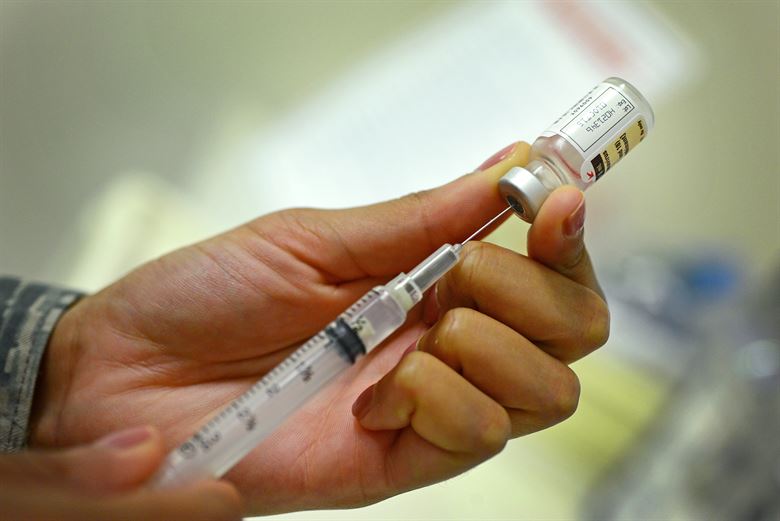Yet another outbreak of a vaccine-preventable illness is taking place with the spreading of mumps at Temple University in Philadelphia. Dr. Jeffrey Goldstein, Director of Health Services on campus, sent a health alert this Tuesday to caution students.
Goldstein warned that if students think they are experiencing symptoms or “have been in close contact with someone who has been diagnosed with mumps,” that they should contact Bailey Health Center.
According to a Patch report published online, the illness has traveled into Montgomery County, including to a student at West Chester University in Philadelphia. In addition, more than 100 cases have been reported in the region, including 86 at Temple University.
“Our institution isn’t that far away [from Temple] and we have lots of students who probably spent time in the Philly area [during the break], so I want to make our community aware that someone can report a case of mumps to our campus and what the signs and symptoms may be,” he said.
Goldstein said that, although most students on campus have had the typical childhood mumps vaccination, as it is required for all Lafayette students prior to matriculation, this does not eliminate the possibility of an outbreak. Goldstein has said that about two students per class declined to be immunized at all due to fear of vaccines, religious purposes or philosophical reasons, and are granted a waiver from the vaccine requirement.
“There are many outbreaks on college campuses, so what happens over time is immunity wanes and is not as good enough to ward off a full-blown infection,” he said. “Students sickened by this virus have been immunized, but students at Temple are different because they don’t require the mumps vaccine.”
Goldstein said that, for someone who has contracted the mumps, they should expect “symptoms like headache, fever and body ache,” followed by a “swelling of the salivary gland around the angle of the jaw, which makes [mumps] unique in that respect.”
Mumps is a potentially fatal illness which can result in complications like meningitis, which is brain and spinal cord inflammation and pancreatitis. “Disease symptoms are generally milder and complications are less frequent in vaccinated people,” according to the Center for Disease Control and Prevention (CDC).
Goldstein noted that there is no specific treatment for this virus, but, like a cold, “people feel sick for a week or so then feel better usually.”
“Mumps is typically spread by direct contact with one’s saliva or respiratory droplets,” he said. “It is similar to influenza in how it spreads and is a highly contagious infection.”
If there were a case reported on campus, Goldstein said that the school would follow the same protocol as it has in the past.
“Students spread it quickly so we’d probably practice self-isolation. Students diagnosed would be isolated in dorms or would be asked to go home for a few days until less contagious,” he said. “We’d try to immunize people who have gotten in close contact.”
To help prevent the spread of the disease, Goldstein says that it is important for students to become knowledgeable about the mumps, and to be seen as soon as possible so that the health center can make a diagnosis and make further direct recommendations to students. He also noted the power of vaccines in reducing students’ likelihood of contracting the illness.
“The report of efficacy in the college age group after students have been immunized with two doses of MMR [Measles, Mumps, and Rubella] vaccine is 88%,” he said. “If you take 100 people who have been immunized with two doses, about 88 out of 100 would be immune as a college student.”
Goldstein urges the campus to be vigilant, and, if anyone starts exhibiting symptoms of the illness, he wants to “get a hold of the infection so as not to spread the virus.”
The college recently had a case of whooping cough, or pertussis, a disease against which students are required to be immunized. This case prompted a review of student health records, after which students were notified if they needed a booster shot for any vaccinations.


















































































































